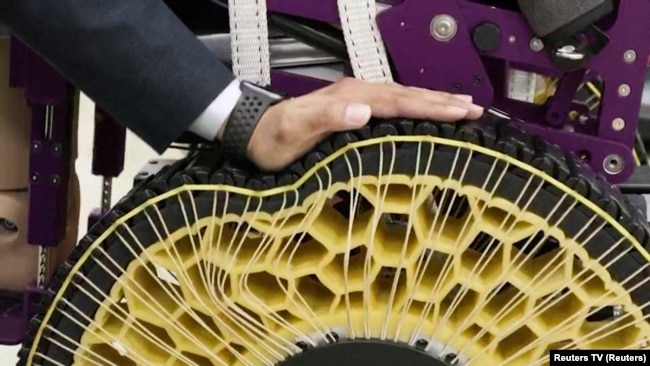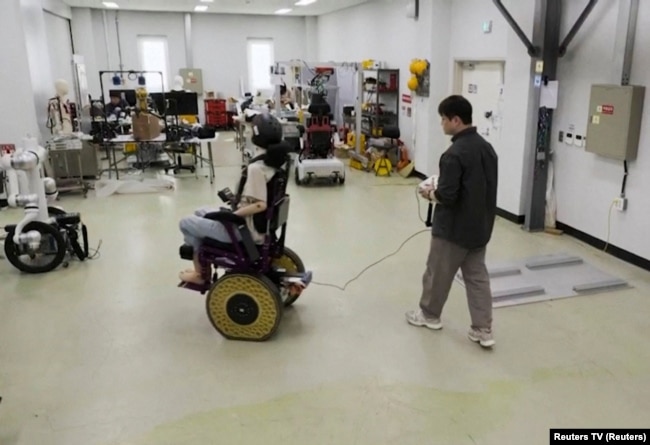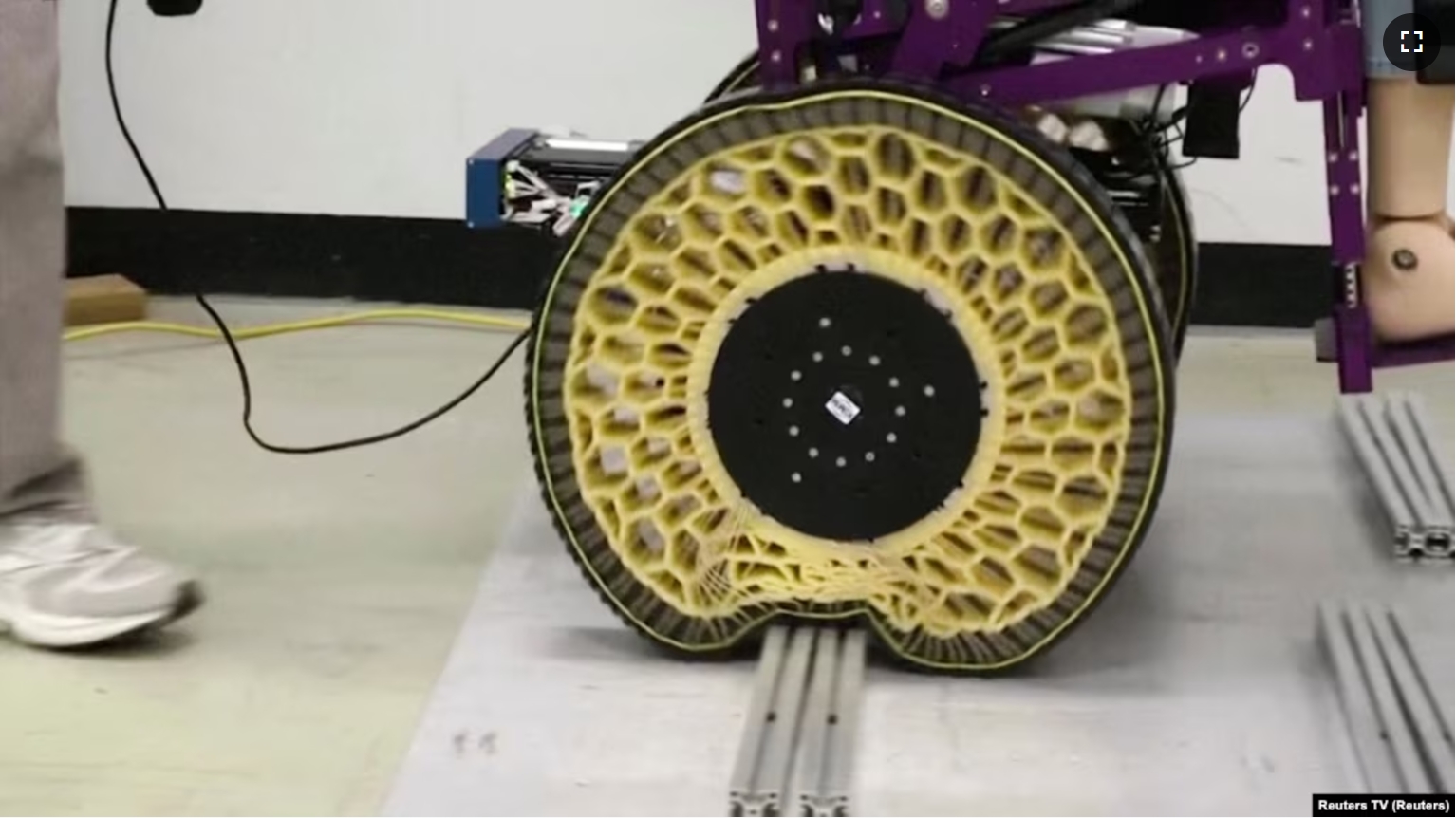Imagine a wheelchair equipped with wheels flexible enough to move over all kinds of barriers: including the raised edges of streets.
A robotic delivery vehicle could use the same wheels to go up stairs to deliver food or other purchases.
This is what researchers from the Korea Institute of Machinery and Materials (KIMM) see as the future for their ‘morphing’ wheel. The wheels can change their shape and can roll over barriers up to 1.3 times their radius. The radius of a wheel is half its height.
Other possible applications for the morphing wheel include robots that gather information about an enemy in the battlefield.
The KIMM team also hopes that morphing wheels will one day be used with two and four-legged robots. Now, the movement of those machines is limited. Too much shaking is also a problem. With the morphing wheels, the robots could carry objects that need smooth movement for industrial use.

Aim to increase speed
Song Sung-hyuk is the lead researcher at South Korea’s KIMM and a member of the AI robotics research team. He said the goal is to make the wheels work at the average speed of a car. That is about 100 kilometers per hour.
Wheels developed for a similar purpose, such as airless wheels, have flexibility but are limited in their ability to overcome barriers, said Song. The difference between airless wheels and the morphing wheel is that airless wheels are always soft, but the morphing wheels can change from hard to soft when they meet a barrier. They can then return to being hard to permit faster travel where there are no barriers.
The morphing wheel is made of an outer circle of chain and a series of wires running through its central hub. A sensor controls the stiffness of the wires in reaction to the barriers in its path.

Song’s team demonstrated to Reuters a model of a wheelchair riding on morphing wheels as it climbed stairs with 18-cm steps. The team has also tested a device using the wheel at speeds of up to 30 kilometers an hour.
I’m Andrew Smith.
Hyun Young Yi, Daewoung Kim and Jack Kim reported this story for Reuters. Jill Robbins adapted it for Learning English.
_________________________________________________
Words in This Story
flexible – adj. capable of bending or being bent
stairs – n. a series of steps that go from one level or floor to another
morph – v. to change gradually and completely from one thing into another thing usually in a way that is surprising or that seems magical
shake –v. to move back and forth quickly and even violently
chain –n. a series of metal links that look like a rope or similar line
stiff – adj. difficult to bend or move
